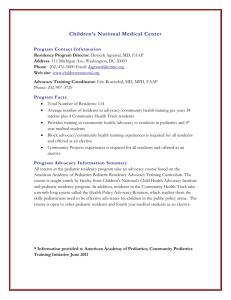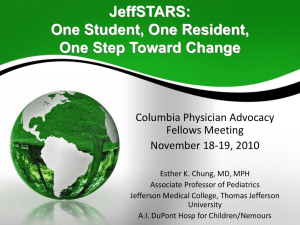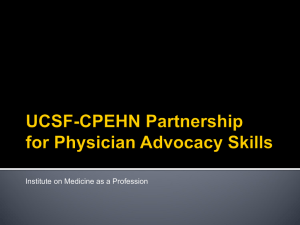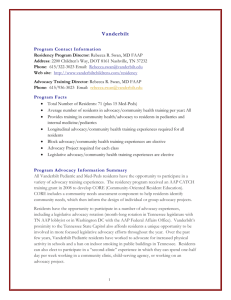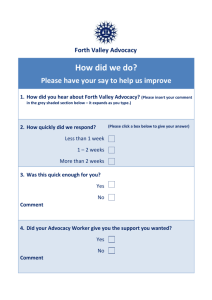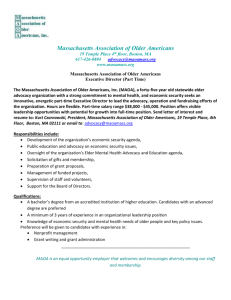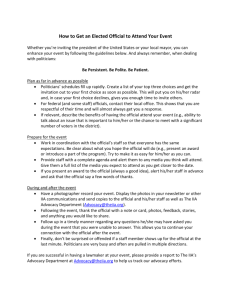Mount Sinai Hospital - American Academy of Pediatrics
advertisement
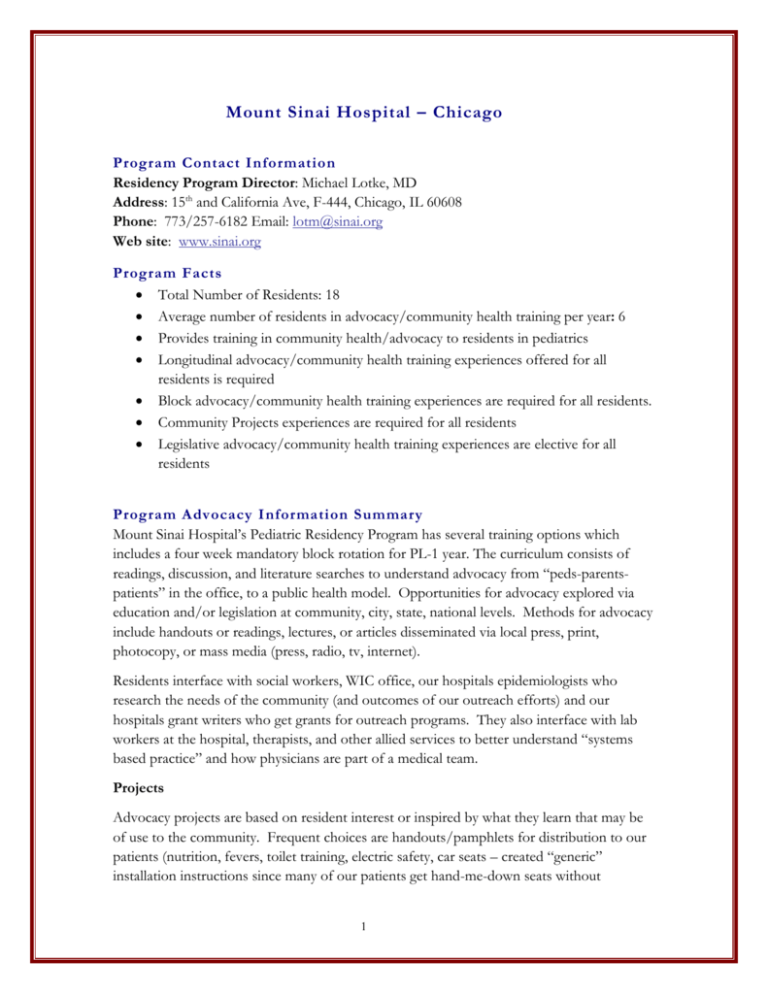
Mount Sinai Hospital – Chicago Program Contact Information Residency Program Director: Michael Lotke, MD Address: 15th and California Ave, F-444, Chicago, IL 60608 Phone: 773/257-6182 Email: lotm@sinai.org Web site: www.sinai.org Program Facts Total Number of Residents: 18 Average number of residents in advocacy/community health training per year: 6 Provides training in community health/advocacy to residents in pediatrics Longitudinal advocacy/community health training experiences offered for all residents is required Block advocacy/community health training experiences are required for all residents. Community Projects experiences are required for all residents Legislative advocacy/community health training experiences are elective for all residents Program Advocacy Information Summary Mount Sinai Hospital’s Pediatric Residency Program has several training options which includes a four week mandatory block rotation for PL-1 year. The curriculum consists of readings, discussion, and literature searches to understand advocacy from “peds-parentspatients” in the office, to a public health model. Opportunities for advocacy explored via education and/or legislation at community, city, state, national levels. Methods for advocacy include handouts or readings, lectures, or articles disseminated via local press, print, photocopy, or mass media (press, radio, tv, internet). Residents interface with social workers, WIC office, our hospitals epidemiologists who research the needs of the community (and outcomes of our outreach efforts) and our hospitals grant writers who get grants for outreach programs. They also interface with lab workers at the hospital, therapists, and other allied services to better understand “systems based practice” and how physicians are part of a medical team. Projects Advocacy projects are based on resident interest or inspired by what they learn that may be of use to the community. Frequent choices are handouts/pamphlets for distribution to our patients (nutrition, fevers, toilet training, electric safety, car seats – created “generic” installation instructions since many of our patients get hand-me-down seats without 1 manufacturer instructions). Electric safety included getting outlet covers to distribute handout (3/handout), helmet safety included coupons for discounted helmets, fevers contracting with major pharmacy to provide detachable coupon for free or reduced price thermometer. Other frequent choices are lectures to the community (burn injury prevention, sex and sexuality, nutrition – focus on lunchtime choices). Residents have written to Illinois legislature about child safety seat laws and habilitative services for autism (and were then invited to speak before the state panel). Several have spoken on the radio or been interviewed for TV about advocacy and community topics * Information provided to American Academy of Pediatrics; Community Pediatrics Training Initiative November 2008 2
